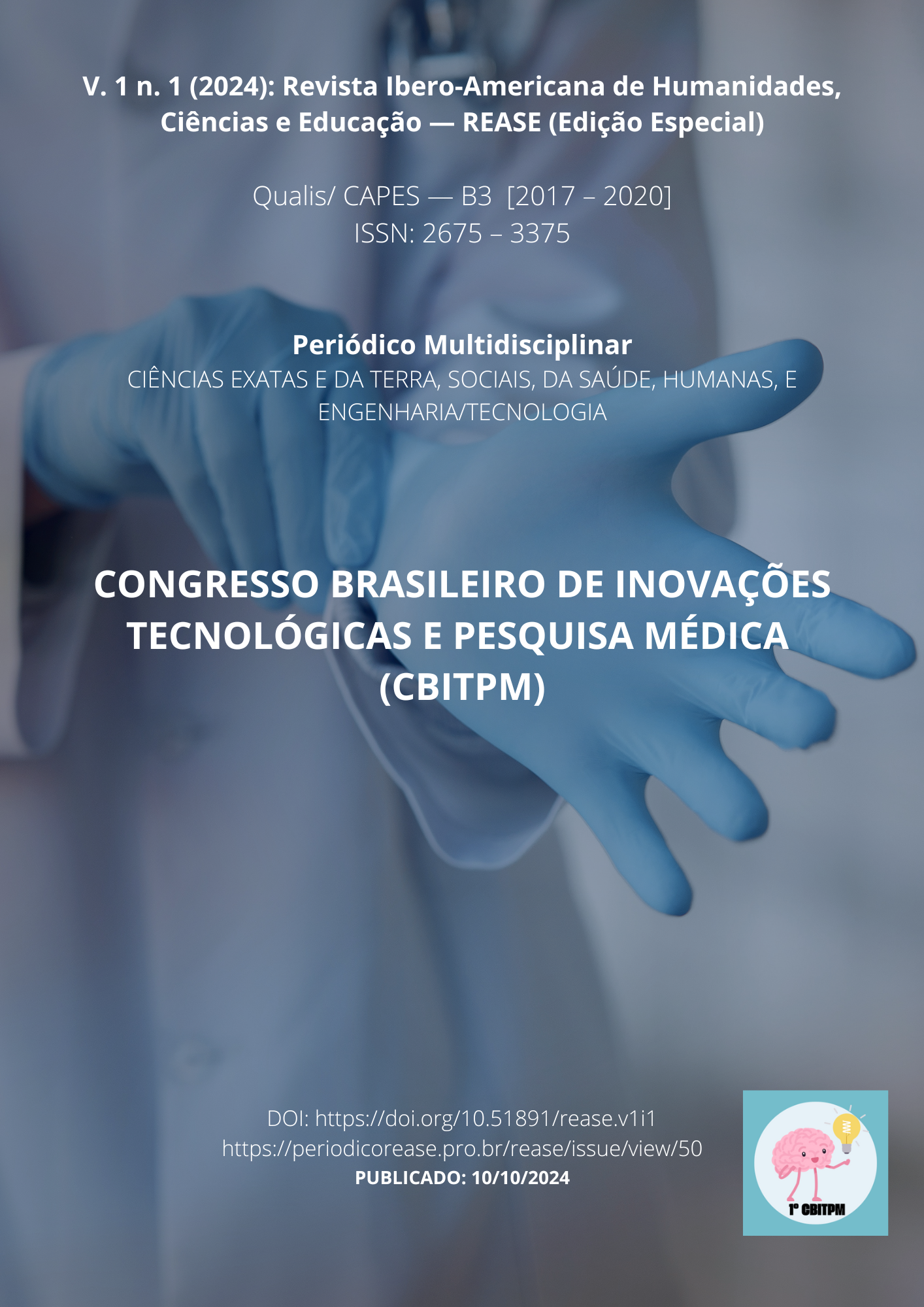SURGICAL TREATMENT OF COMPLICATED DIVERTICULAR DISEASE IN PATIENTS WITH CARDIOMETABOLIC DISEASES: CLINICAL APPROACH
DOI:
https://doi.org/10.51891/rease.v1i1.16151Keywords:
Colectomy, Resection, Anastomosis, Peritonitis and Abscess.Abstract
Introduction: Complicated diverticular disease is a common condition that can lead to serious complications, such as perforation, abscesses, and peritonitis. Surgical treatment is often necessary, especially in patients with cardiometabolic diseases, such as diabetes and hypertension, which can complicate perioperative management and impact recovery. These patients, often women, face an increased risk of surgical complications due to their underlying conditions. Therefore, the clinical approach to surgical treatment should carefully consider preoperative evaluation and postoperative management planning, aiming to minimize risks and optimize outcomes. Objective: To explore the surgical treatment of complicated diverticular disease in patients with cardiometabolic diseases, emphasizing relevant clinical considerations. Methodology: The methodology followed the PRISMA checklist to ensure rigor in study selection. The databases consulted were PubMed, Scielo, and Web of Science, using the descriptors Colectomy, Resection, Anastomosis, Peritonitis, and Abscess. Inclusion criteria were: articles analyzing surgical treatment in patients with complicated diverticular disease and cardiometabolic comorbidities, publications from the last 10 years, and including data on women. Studies that did not focus on surgical aspects, literature reviews, and those that addressed only pediatric patients were excluded. Results: The results indicated that the surgical approach in patients with complicated diverticular disease and cardiometabolic diseases requires careful planning, including assessment of comorbidities and choice of surgery type. It was observed that patients with diabetes, for example, had a higher risk of postoperative infections, which reinforced the importance of rigorous management during recovery. Conclusion: Surgical treatment of complicated diverticular disease in patients with cardiometabolic diseases is challenging and requires a holistic clinical approach. The literature highlighted the need for careful planning and personalized strategies, especially for women, in order to reduce complications and improve surgical outcomes.
Downloads
Downloads
Published
How to Cite
Issue
Section
License
Atribuição CC BY

